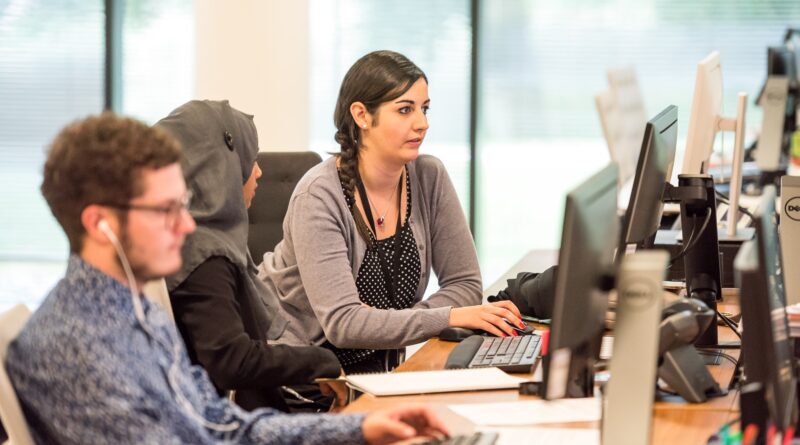4 Tips On Getting Work Done In A Busy Environment
There will always be opportunities for distraction no matter what your work life tends to look like. In a workplace, everyday interruptions such as nearby phone notifications, unscheduled meetings, and conversing with coworkers can easily cause you to lose your train of thought. You’ll find distractions at home as well: a needy pet begging for your attention, the sound of the dishwasher humming, or that stack of bills you need to pay.
Distractions are a natural part of life and, in moderation, can be beneficial: short breaks throughout the day can help to refresh your mind and avoid stress and burnout. However, if you devote too much time away from important tasks to less important tasks, you are sabotaging your own productivity.
Learning how to avoid distractions is a difficult goal to achieve. Sometimes, you might sit at your desk, eager to get back to work. “All right, let’s do this,” you say to yourself. You navigate to Word or Google Drive and create a new document. You know what needs to be done, but what do you actually do about it?
You scribble a few words but can’t seem to concentrate. Then you think, “Perhaps I should wake myself up with something fun,” and you go on Facebook for 20 minutes. Then there’s an hour of mindlessly watching YouTube videos. Lunchtime arrives before you know it, and half the day has passed.
While technology has made productivity more efficient, it has also made getting work done a bit tougher with the countless things you can do with it. So, how do you handle distractions in a busy work environment? Here are some things to help you:
Set Goals For Yourself
As you learn how to avoid distraction, it’s critical to start with a solid foundation for your focus. This entails determining why you need to focus in the first place. Do you need to prepare for a big project at work next week? Do you want to know how to use a new application and need to focus for an hour each day to explore it?
Determining your ultimate goal will allow you to devote yourself to learning how to focus. Knowing why we need to stay focused can help us push through the difficult and time-consuming parts of achieving our goals. That is when our ability to focus is put to the ultimate test and is most needed.
Do Not Multitask
Trying to do numerous tasks at once has been shown repeatedly in science to reduce productivity, and it turns out that it also reduces our ability to focus. A 2009 Stanford study discovered that heavy media multitaskers found it hard to filter out distractions during cognitive ability tests.
Scrolling through Instagram while watching TV is an example of media multitasking. Researchers were unsure whether these heavy multitaskers were born unable to focus or if their exhaustive multitasking harmed their ability to do so.
Avoid Procrastination
To ensure that you complete those two to three tasks, you must complete them early in order to remain committed to the task without feeling stressed. This means that you’re already planning how to do them as soon as you wake up.
It’s difficult, but putting them off until later only invites distraction. Distractions will inevitably arrive in the form of unexpected emails, social media, a child who requires your attention, or coworkers who require assistance with their projects. All of this can sap your mental strength and make it difficult to focus on the task at hand.
Turn Off Notifications
Mobile phones – and now smartwatches – have merged personal and professional communication. Work emails and phone calls can now be received on the same device as private Facebook comments, Instagram photos, and a variety of other personal information.
Given the addictive nature of such technology, policies to control its use at work are rarely effective, as it is difficult to implement rules about what people can look at on their own devices.
Individuals who effectively manage the problem are usually more helpful. For example, you and your coworkers could agree to put your phones away for a certain period of time during the day to help you focus on a specific piece of work.
Key Takeaway
It is definitely easier said than done to learn how to avoid distractions. Distractions exist in every aspect of our lives these days, even if they are as simple as a short beep generated by a notification. These types of distractions may appear minor, but any activity or object that keeps your focus away from work will impact your productivity.
Don’t let yourself be distracted. Instead, use some of the suggestions above to regain focus and overcome distractions. Your productivity and work will appreciate you doing them in the future.



